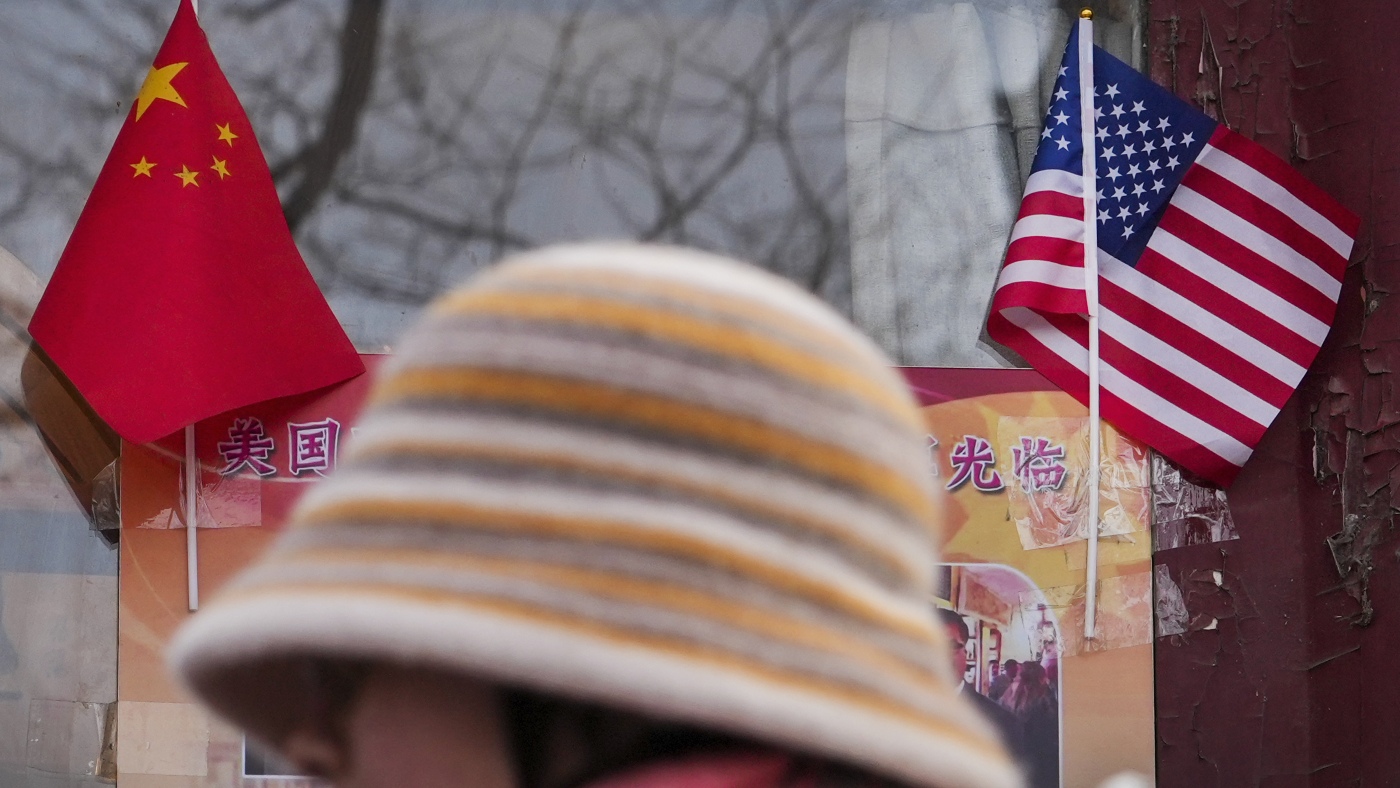

A woman walks by the Chinese and U.S. national flags on display outside a souvenir shop in Beijing on Jan. 31, 2025.
Andy Wong/AP
hide caption
toggle caption
Andy Wong/AP
BEIJING — China is not taking the Trump administration’s tariffs sitting down.
On Tuesday, shortly after the 10% tariffs took effect just past midnight on the U.S. East Coast, Beijing announced a raft of countermeasures.
Those include 15% tariffs on American coal and liquefied natural gas and 10% tariffs on crude oil, farm equipment and certain other vehicles. The Chinese counter-tariffs are slated to take effect on Feb. 10.
In a statement, the Chinese finance ministry said the U.S. tariffs “severely violate World Trade Organization (WTO) rules, and not only fail to address [America’s] own problems but also disrupt normal economic and trade cooperation between China and the United States.”
In addition, China’s market regulator announced an anti-monopoly investigation into Google. And the commerce ministry and customs administration jointly announced fresh export controls on a handful of rare metals, including tungsten, indium and molybdenum.
China’s commerce ministry also put two U.S. firms – PVH Group and Illumina, Inc. – on its “unreliable entity” list, saying they violated market principles and adopted discriminatory measures against Chinese companies. PVH is the parent company of brands including Tommy Hilfiger and Calvin Klein.
Those announcements did not explicitly mention the U.S. tariffs.
Trump signed orders for the tariffs against China, Canada and Mexico over the weekend in a bid to pressure those three countries to do more to stop the flow of migrants and illegal drugs, including fentanyl, into the United States.
The tariffs on Mexico and Canada have been put on hold for at least a month after last minute negotiations led to both countries agreeing to boost border security.
Julian Evans-Pritchard, head of China economics at the research firm Capital Economics, said in a note the retaliatory measures were “fairly modest.” He estimated that the targeted goods represent, at most, $20 billion worth of annual imports, or around 12% of China’s total imports from the U.S. — a fraction of the more than $450 billion in Chinese goods subject to the 10% U.S. tariff.
He said the retaliation was calibrated to send a message without inflicting too much damage, and leaving China an option to back down.
“But there is a risk that retaliation backfires by encouraging Trump to escalate tariffs further,” he said.
Evans-Pritchard added that de-escalating the standoff might be challenging.
“[T]he underlying economic and political grievances between China and the U.S. run far deeper than those between the U.S. and its neighbours,” he said.
China is a major source of the precursor chemicals to make fentanyl, and Beijing says it has gone out of its way to help curb the flow of the synthetic opioid into America. After Trump announced his latest tariffs, China warned that they would damage prospects for future cooperation and vowed to launch a case against them in the WTO.
Trump has warned that he could increase the tariffs on China further.
Earlier, Karoline Leavitt, the White House spokesperson, said Trump was due to talk to Chinese leader Xi Jinping in the next 24 hours.
https://npr.brightspotcdn.com/dims3/default/strip/false/crop/6000×3375+0+313/resize/1400/quality/100/format/jpeg/?url=http%3A%2F%2Fnpr-brightspot.s3.amazonaws.com%2Fab%2Fef%2Fcd02b840403a88403d6b429cbce3%2Fap25035246042980.jpg
2025-02-04 01:14:14

